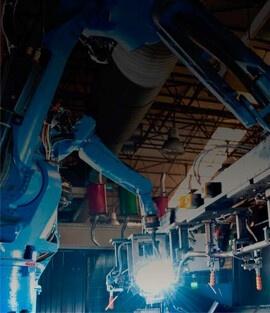How to prepare for challenges of tomorrow? Can the future be effectively provided at all? In particular in the information technology area? This is certainly not easy, but there are examples that prove that it can be successful sometimes – Bill Gates, founder of Microsoft, knows something about it, although he also experienced spectacular "failures".
Precise forecasts are of course long shot, but looking carefully at the socio-economic megatrends and key technologies shaping the contemporary world you can be really close to accuracy. Epicor decided to look at the megatrends that will have the greatest impact on the factories in the next few years. If we know what precaution should be taken and how to use it, we could acquire an opportunity to generate two significant benefits: increase of efficiency and reduce costs.
Firstly, demographic change: by 2030 there will be almost 8.4 billion people in the world. Population in developed countries will decrease and in developing countries – increase. This means that consumer markets will be increasingly more remote and therefore the inclusion of the global supply chain will be increasingly important. By 2030 the value of the exported goods will be three times larger than now. We have taken into consideration not only BRIC nations (Brazil, Russia, India and China) but also MINT (Mexico, Indonesia, Nigeria and Turkey) as well as South Korea – these countries will probably grow much faster than the rest of the world.
Dynamic development means an increase in energy demand with shrinking natural resources. It is expected that by 2030 energy needs would increase by 23%, but they continue to be covered by using fossil fuels.
Add to that the technological development. Not only the growing number of devices connected to the network but foremost by the amount of data generated by them. Potential created by IoT, analytical technologies, artificial intelligence and cloud computing is enormous.
What does it all show? Undoubtedly the need for transformation. Factories of today do not meet future challenges. If we want to take advantage of the opportunity, we should move as quickly as possible toward full concentration on the client, vertical specialization, the deepening of cooperation, build competitive advantage and improving efficiency. High innovation, flexible approach, automation, use of large data sets and the possible cloud solutions are key factors of future success.
Nearly four decades of experience make Epicor understands the challenges of the industry – not only of the past and the present but also the future. So we can make better use of breakthrough technologies and new business models to build solutions that allow a more calm look into the future. What would the future factory be like in consequence of megatrends? We shall write about it in our next entry.
Source:
https://www.businessinsider.com/bill-gates-15-predictions-in-1999-come-true-2017-6
https://www.epicor.com/blogs/manufacturing/megatrends-shaping-the-factory-of-the-future.aspx




